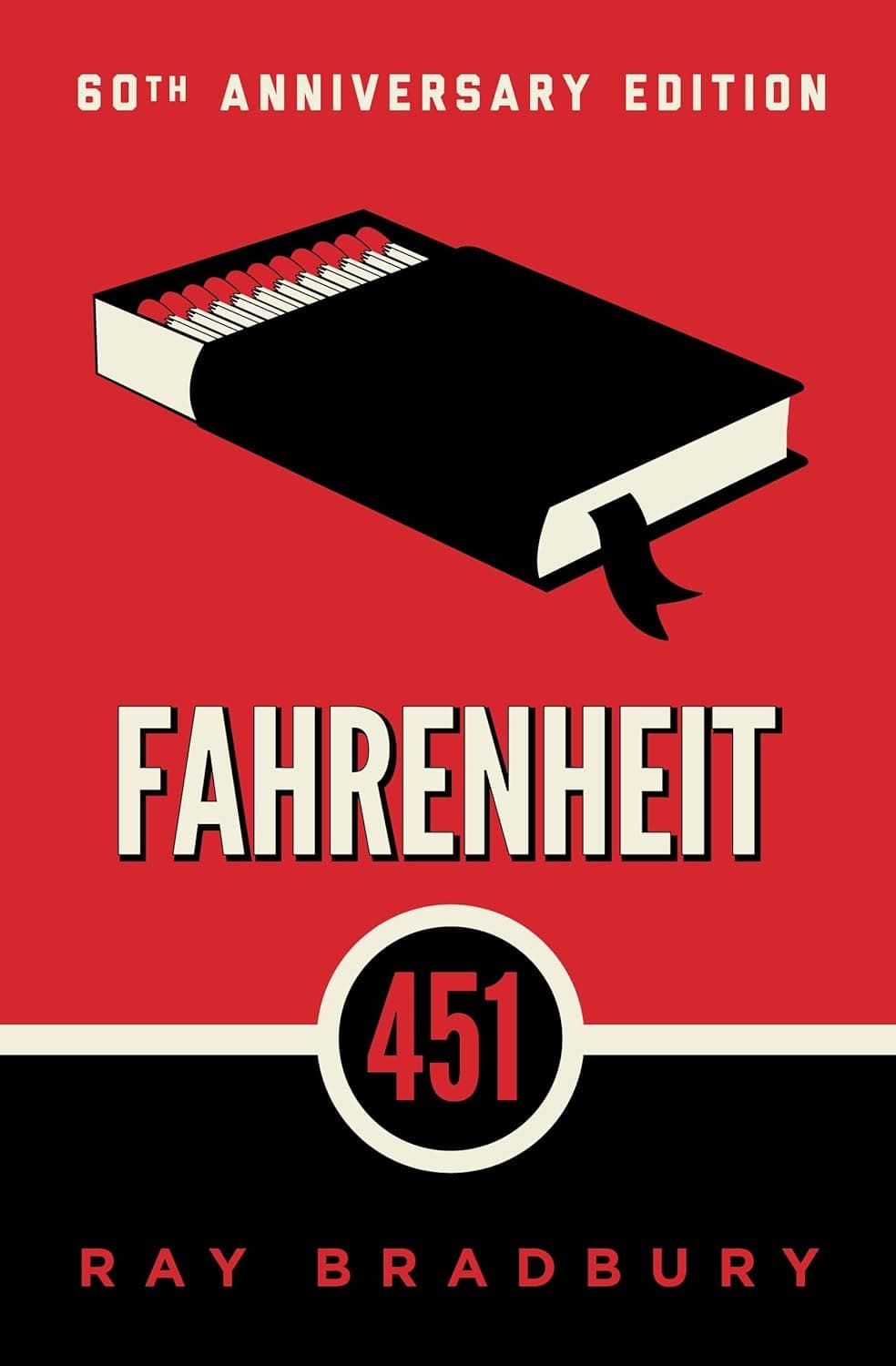
Review summary
This spoiler free review of Fahrenheit 451 by Ray Bradbury walks through why this classic dystopian novel that classic dystopian fiction review still hooks readers. Fahrenheit 451 tracks fireman Guy Montag as he begins questioning a future America that burns books to protect comfort over curiosity.
Full review
This review of Fahrenheit 451 revisits Ray Bradbury's classic dystopian novel and its central hook: fireman Guy Montag burns books for a living until small doubts push him to question a society that prefers comfort over curiosity.
Montag's slow awakening drives the story. Routine firehouse raids and staged emergencies give way to private conversations with a curious neighbour and a woman who refuses to abandon her library. Those encounters show how a single uncomfortable question can expose the cracks in an entire system built on distraction.
Bradbury's language mixes surreal, poetic images with blunt warnings about propaganda, passive media, and groupthink. Every alarm, flame, and mechanical hound scene underlines how easy it is to trade reflection for shallow entertainment, a theme that still feels relevant for modern readers and students.
If you are ready to revisit this essential novel, you can secure Fahrenheit 451 on Amazon and explore our dystopian fiction hub for more stories about censorship, resistance, and the value of books.
Fahrenheit 451 Review Highlights
Memorable dystopian imagery that makes censorship, screen addiction, and distraction feel unsettlingly familiar.
A character driven rebellion that begins with quiet questions instead of open revolution.
Layered symbolism that rewards close reading, classroom essays, and book club discussions.
Best Readers for Fahrenheit 451
Fans of classic literature that examines mass media, propaganda, and free speech.
Book clubs exploring banned books, freedom of thought, and personal responsibility.
Students comparing dystopian novels such as 1984, Brave New World, and The Handmaid's Tale.
Fahrenheit 451 Discussion Prompts
Compare the novel's wall sized TVs and constant noise with today's algorithm driven feeds and notifications.
Trace how Montag's relationships with Clarisse, Mildred, and Beatty show different responses to control and comfort.
Discuss how memory, reading, and storytelling help characters rebuild meaning after censorship.
Key ideas
- Censorship grows stronger when distraction and shallow entertainment replace curiosity and dialogue.
- Personal doubts and quiet acts of resistance can destabilise rigid, oppressive systems from within.
- Literature preserves empathy, memory, and critical thinking even when a culture turns away from books.
If you liked this, read next
FAQ
- What is Fahrenheit 451 about?
- Fahrenheit 451 follows fireman Guy Montag as he begins to question a future America where books are burned and shallow entertainment keeps people from thinking too deeply. Fahrenheit 451 by Ray Bradbury is a classic dystopian fiction novel with science fiction touches that explores censorship and free thought.
- Who will enjoy Fahrenheit 451?
- Readers drawn to Dystopian Fiction, Science Fiction, and Classic Literature will appreciate how the book combines social criticism with a tense, personal story. Teen and adult readers interested in media, politics, and technology will find plenty to reflect on.
- What themes stand out in Fahrenheit 451?
- Important themes include censorship, the lure of distraction, the role of books in preserving memory, and the courage it takes to think differently. The novel encourages readers to question how they use technology and how they protect space for reflection.
- Is there anything to know before starting Fahrenheit 451?
- The book combines lyrical, sometimes dense language with a fairly short page count, so it can be helpful to read at a steady pace and pause to absorb key images. Looking at a brief sample can show you whether Bradbury's style suits your mood right now.
Reader-focused angles
This review intentionally answers longer questions readers often ask, such as fahrenheit 451 plot summary and main themes about censorship and media, fahrenheit 451 age suitability, reading difficulty and who should read it, books like fahrenheit 451 for ray bradbury and classic dystopia fans, and fahrenheit 451 characters, symbols and ideas to analyze, so the guidance fits naturally into the analysis instead of living in a keyword list.
Each section of the review is written to speak directly to those searches, making it easier for book clubs, educators, and new readers to find the specific perspectives they need.
Reading guide
- Notice each moment when silence or stillness interrupts the constant noise in Montag's world and how his reaction changes.
- Compare the firemen's slogans and speeches with modern political messaging or advertising techniques.
- Create a simple timeline of Montag's transformation to highlight turning points that shift his loyalty and beliefs.
As an Amazon Associate, I earn from qualifying purchases.